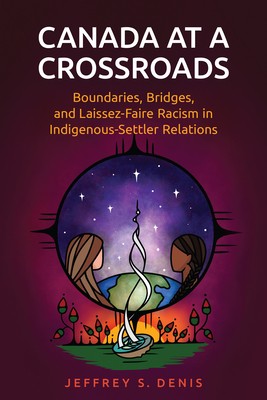
- We will send in 10–14 business days.
- Author: Jeffrey Denis
- Publisher: University of Toronto Press
- ISBN-10: 1442614471
- ISBN-13: 9781442614475
- Format: 15.2 x 22.6 x 2.5 cm, softcover
- Language: English
- SAVE -10% with code: EXTRA
Reviews
Description
Drawing on group position theory, settler colonial studies, critical race theory, and Indigenous theorizing, Canada at a Crossroads emphasizes the social psychological barriers to transforming white settler ideologies and practices and working towards decolonization. After tracing settlers' sense of group superiority and entitlement to historical and ongoing colonial processes, Denis illustrates how contemporary Indigenous and settler residents think about and relate to one another. He highlights how, despite often having close cross-group relationships, residents maintain conflicting perspectives on land, culture, history, and treaties, and Indigenous residents frequently experience interpersonal and systemic racism. Denis then critically assesses the promise and pitfalls of commonly proposed solutions, including intergroup contact, education, apologies, and collective action, and concludes that genuine reconciliation will require radically restructuring Canadian society and perpetually fulfilling treaty responsibilities.
EXTRA 10 % discount with code: EXTRA
The promotion ends in 14d.12:16:16
The discount code is valid when purchasing from 10 €. Discounts do not stack.
- Author: Jeffrey Denis
- Publisher: University of Toronto Press
- ISBN-10: 1442614471
- ISBN-13: 9781442614475
- Format: 15.2 x 22.6 x 2.5 cm, softcover
- Language: English English
Drawing on group position theory, settler colonial studies, critical race theory, and Indigenous theorizing, Canada at a Crossroads emphasizes the social psychological barriers to transforming white settler ideologies and practices and working towards decolonization. After tracing settlers' sense of group superiority and entitlement to historical and ongoing colonial processes, Denis illustrates how contemporary Indigenous and settler residents think about and relate to one another. He highlights how, despite often having close cross-group relationships, residents maintain conflicting perspectives on land, culture, history, and treaties, and Indigenous residents frequently experience interpersonal and systemic racism. Denis then critically assesses the promise and pitfalls of commonly proposed solutions, including intergroup contact, education, apologies, and collective action, and concludes that genuine reconciliation will require radically restructuring Canadian society and perpetually fulfilling treaty responsibilities.


Reviews